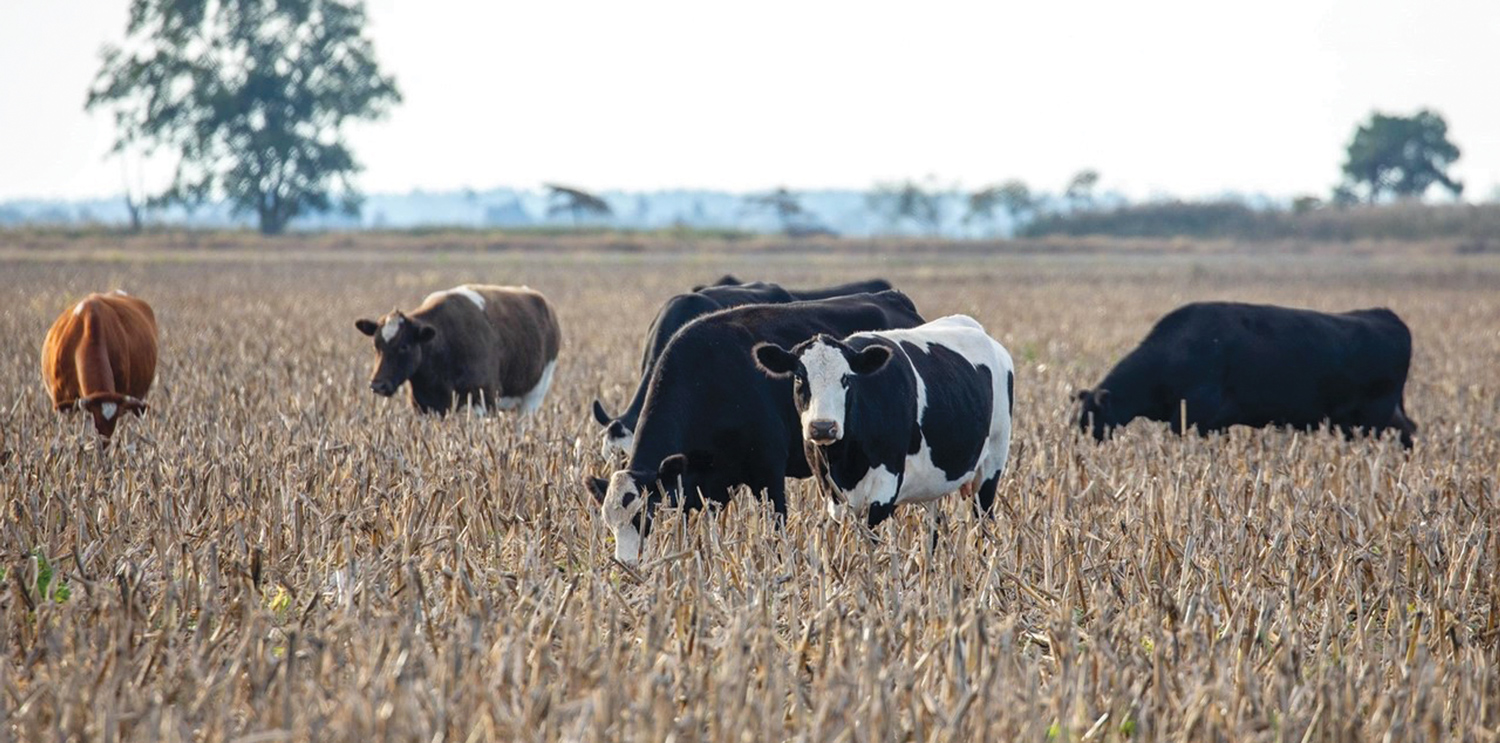July 2025
MAIZE STOVER CONSISTS OF THE RESIDUES OF MAIZE AND INCLUDES STALKS, LEAVES, HUSKS AND COBS LEFT IN A FIELD AFTER HARVESTING. IT IS A VALUABLE COMMODITY AND MAIZE FARMERS SHOULD ALWAYS PLAN TO USE IT IN SOME WAY, OR ALTERNATIVELY TRADE IT.
By optimising the stover, a farmer is essentially increasing the benefits and profitability of his maize production cycle. With profit margins under pressure, every maize farmer must decide how best to capitalise on the stover left in the field.
Some landowners who lease land to other farmers may stipulate that they want access to the land post-harvest so they can benefit from the stover on the field. In this instance, the farmer who has leased the field must be aware of the value of the stover, and there should be some trade-off in the land rent agreement.
UTILISING THE STOVER
Grazing
The most economical way of utilising the stover is to allow your livestock to graze it off the land. Cattle and sheep can graze it efficiently, but there will be a measure of wastage because, at the same time, the cattle are trampling the stover into the field. In this instance, the cost benefit is that there is no fuel or labour spent to remove any stover off the land.
The disadvantage of having cattle on a field is that the animals will likely need to graze the fields for an extended period. Working the fields in the winter can be very beneficial for the next crop, and livestock in the fields will prevent the farmer from preparing the soil for the next season. Therefore, the farmer will have to decide on how long the livestock should be allowed to graze.
Maize stover is an excellent feed source and a fantastic way of growing your livestock through the winter months. The animals will gain condition and thrive on maize stover, compared to those that are overwintered on dry grasslands or veld. Some farmers even plan for this and will buy more animals specifically to eat the maize stover, then sell them again after a few months because of the promise of excellent weight gain from running them on maize stover.

Baling
When a landowner does not have the option of using the field for an extended period post-harvest, it is possible to bale the maize stover and remove it from the land. This involves mechanical costs as the stover must be chopped, raked and baled.
The benefit is that this method removes the maximum tonnage available from the fields. It can then be sold or mixed into feed rations for livestock or even be fed as is, with animals eating the bales in a more convenient place.
The maize stover should be harvested as soon as possible after the grain has been harvested. There will be a steady decrease in the quality of feedstock when it is left to lie on the fields longer, as the sugar and protein content decreases and fibre increases.
However, there is also a disadvantage to baling the stover that the farmer must keep in mind as he weighs up his costs and options. By removing the stover from the fields completely, the soil is left more exposed to possible wind erosion and topsoil will be blown away.
Leave it untouched
To prevent wind erosion damage, some farmers prefer to leave the stover untouched and allow it to break down and decompose on the field. The mulch and organic material can be added to the soil.
This is the approach that a no-till or minimum-till farmer would most likely take, as the idea is to mulch and build up organic material in the soil. Clearly, in this scenario, no livestock should graze on the fields. Unfortunately, this is a huge challenge for the small-scale maize farmers who are expected to allow any village livestock to graze on their lands during the winter months.
CONCLUSION
Every farmer should take time to consider his best options and decide how to capitalise on the value of maize stover. It would be wasteful not to use it.
REFERENCE
https://www.grainsa.co.za/maize-stover-is-a-valuable-commodity
Publication: July 2025
Section: Pula/Imvula
Author: ADAPTATION OF A PREVIOUS ARTICLE BY JENNY MATHEWS, MANAGEMENT AND DEVELOPMENT SPECIALIST AND EDUCATOR